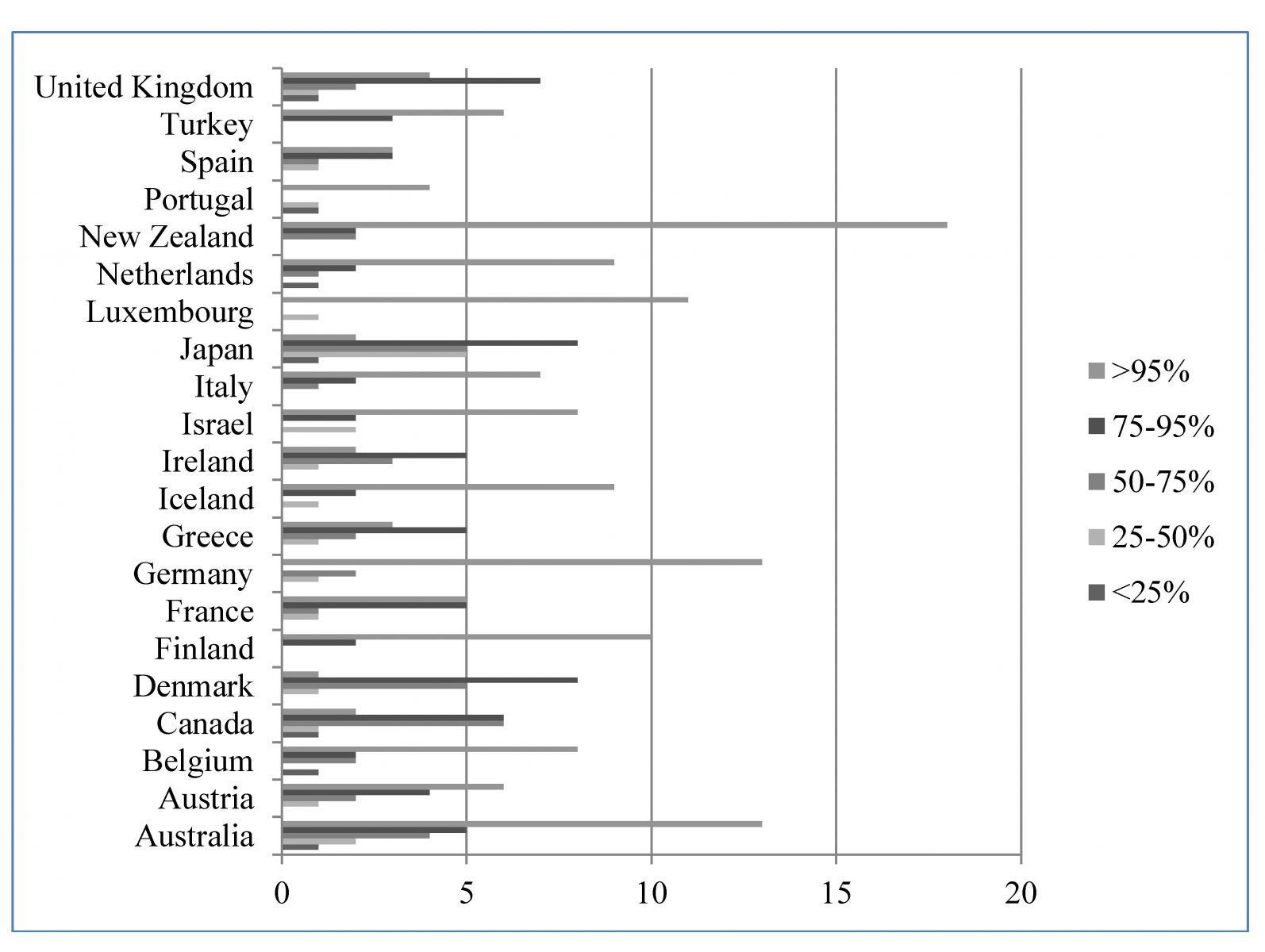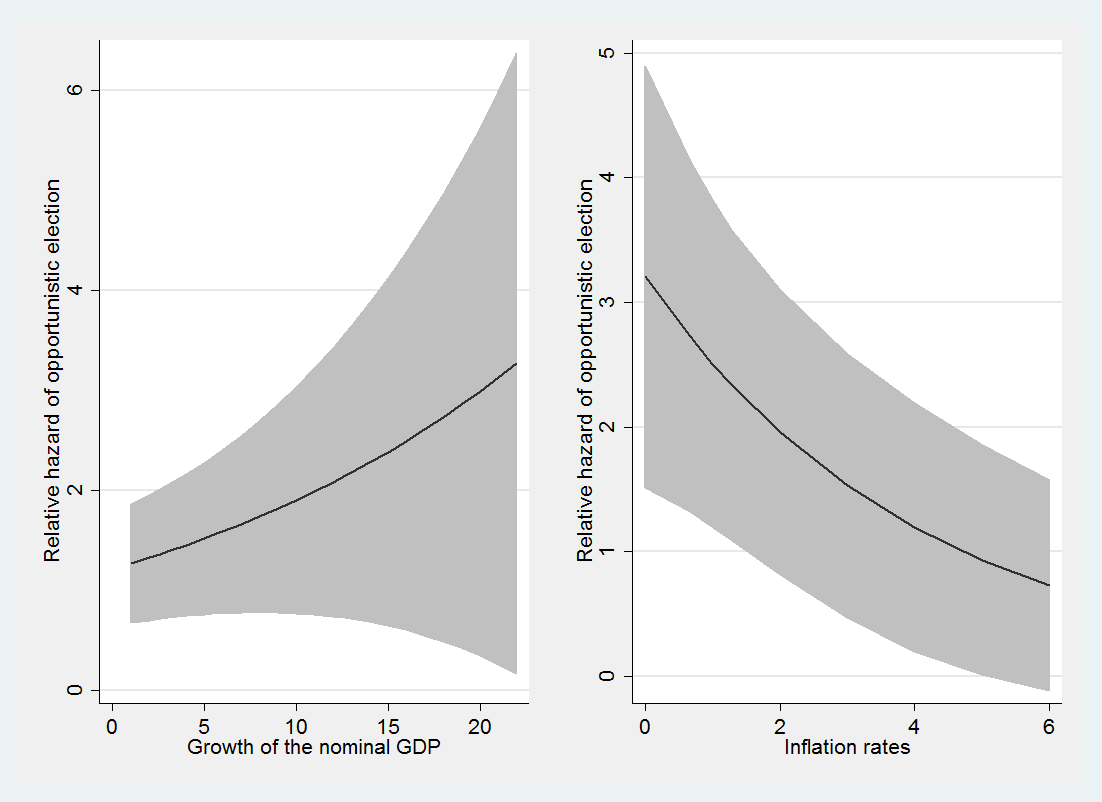To Call or Not to Call an Early Election

Incumbents typically decide the date of the next election. This constitutional feature of almost any parliamentary democracy suggests that governments usually face re-election at moments that they see fit. According to the economic voting literature, vote shares of incumbent parties will be higher when the state of the economy is good. So, governments will be keen on the idea of calling an early election when the economy is growing or inflation rates are low enough. In my paper, I examine whether this is the case, using data from 21 OCDE democracies between 1945 and 2010, and from this, put forward two arguments.
First of all, I argue that an incumbent will opportunistically call an early election when the state of the economy is good. In other words, rational governments try to call elections in “happy” times in order to be re-elected. By contrast, parties in government would be impelled to delay the election date in any period of general slowdown in economic activity or overall rise in the price level of goods and services.
This argument can only work under a strong assumption about voters’ behaviour. The key feature of the economic voting literature provides us with this assumption by linking citizens’ decision at the polls to a reward-punishment mechanism. According to this hypothesis, voters will reward the incumbent with their vote when the economy is good, but will punish her by casting their vote for the challenger when the economy is bad. Given a poor condition of the national economy, incumbents wager that voters will punish them at the polling booth and avoid calling an early election. However, this is only part of the story.
In my article, I also argue that the impact of the economy on the strategic timing of elections will be greater when there is less complexity and more uncertainty within the government. On the basis of this argument, it is more likely that incumbents will be more likely to call an early election when the economy is doing well as long as there is only one party in government (simple context) or the party or parties in office do not enjoy a parliamentary majority (uncertain environment). For example, let’s consider simplicity. In the case of single-party governments, the party in power can take the decision of calling an early election on its own, in that it does not have to agree with anyone else and it can simply act unilaterally. Moreover, it can claim the whole credit for high economic growth or low inflation rates so it would be the only beneficiary of calling an early election in contexts of good economic outcomes. By contrast, all parties belonging to a coalition cabinet need to agree on the election date if they do not want to run the risk of being punished by the electorate. And this is simply not an easy option when voters do not consider all the parties in government equally responsible for the operation of the economy in the country.
Alternatively, parties may be more interested in resorting to the device of strategic timing of elections when they do not have a parliamentary majority (that is, under uncertainty). Being unable to pursue its legislative agenda is a political situation so problematic for a party in government that it is easy to imagine how it will rapidly find incentives to dissolve the parliament and call an early election when the state of the economy is good.
The validity of these statements is corroborated across 21 parliamentary and semi-presidential countries where the advancement of the election date is allowed in the period 1945–2010. In Table 1 below, the 21 countries are listed by the number of parliaments voluntarily dissolved in different moments of the legislative term, and it is clearly shown that the frequency of early elections increases towards the end of the term. You can see here that the occurrence of this phenomenon significantly varies across countries, with the probability of calling an early election before the last 5% of the term being the highest in Canada, Denmark and Japan. How can we explain this variation?
TABLE 1- PROPORTION OF CONSTITUTIONAL TERM EXPIRED BY COUNTRY, 1945-2010

Note: Numbers indicate the number of elections that were voluntarily called during the designated proportion of the constitutional term.
Source: Own elaboration using information from www.keesings.com and www.ipu.org.
The estimates in Figure 1 refer to the effect of economic growth and inflation rates on the probability of an opportunistic advancement of the election date by at least six months. On the one hand, the graph on the left indicates how more frequent the call of an early election becomes when the GDP goes up. On the other, the graph on the right shows that the advancement of the election date becomes less likely when inflation rates go up. Are these effects equally distributed across different types of government?
FIGURE 1

Figure 2 below provides the answer to this question by displaying that single-party minority governments are the most sensitive to the state of the economy when deciding to call an early election. By plotting the effect of GDP growth on the advancement of the election date these graphs show that good economic outcomes only trigger the call of early elections in case of single-party minority governments.
FIGURE 2

What are the implications of this analysis? In spite of recent legislative changes in some parliamentary democracies like Canada and the United Kingdom that introduced fixed-term elections, the strategy of election timing can still be considered substantively important. Normatively speaking, flexibility in election dates has both advantages and disadvantages. With regard to the former, suffice it to say that incumbents that can call early elections at their discretion do not necessarily have to tinker with the economy before the end of their mandates with subsequent suboptimal inflation rates. However, parliamentary and semi-presidential regimes with flexible election dates entail costs for democracy as well because it could be argued that accountability is at least undermined when incumbents resort to the strategic timing of elections.
